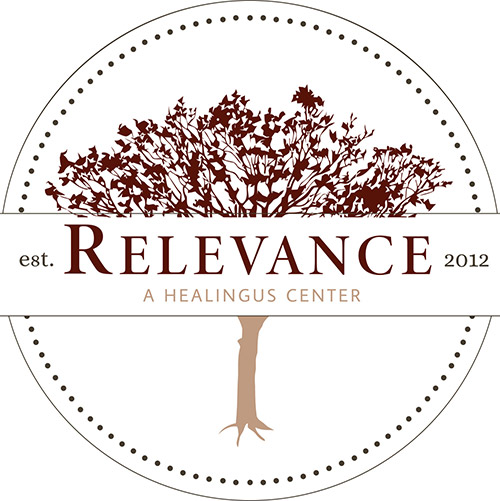Methamphetamine (often called “meth,” “crystal meth,” “ice,” or “Tina”) is a potent stimulant with a high potential for addiction. Its effects on the brain and body are profound and far-reaching, and recognizing the signs of meth addiction early can be lifesaving. According to recent surveys, about 6.6 per 1,000 U.S. adults report past-year methamphetamine use, and over half of those meet criteria for meth use disorder. CDC At Relevance Recovery, we believe in raising awareness so that individuals and loved ones know when to seek help. Below are ten key signs that may indicate meth addiction is developing or already present.
1. Dramatic Weight Loss and Appetite Suppression
One of the earliest physical signs of meth use is a sharp drop in appetite and rapid weight loss. Meth suppresses hunger and boosts energy, leading users to skip meals or eat less frequently. Over time, this leads to noticeable physical wasting, malnutrition, and breakdown in overall health. When someone’s appearance changes quickly—gaunt face, sunken cheeks, thinning body—it may be a red flag.
2. Sleep Disruption and Insomnia
Meth is a powerful stimulant, keeping users awake for long periods. Many users engage in “runs” or binges—consistently using for 24, 48, or even more hours without sleeping, trying to prolong the high. These binges are often followed by crashes, where exhaustion, depression, and irregular sleep cycles occur. Persistent insomnia, even when the user is no longer actively using, is also common.
3. Paranoia, Panic, and Anxiety
Chronic meth use can lead to paranoia, extreme anxiety, and even panic attacks. Users may become distrustful of others, feel as though they are being watched or followed, or harbor fears of conspiracies. Over time, delusional thinking (believing someone is out to harm them) may develop. Anxiety that seems disproportionate or without a clear cause could be a sign of deeper stimulant-related damage to the brain’s chemistry.
4. Hallucinations and Psychosis
Meth addiction can trigger hallucinations—seeing, hearing, or feeling things that aren’t there—and full psychotic episodes. Some users experience tactile hallucinations (feeling bugs crawling under the skin, known as “meth mites”), visual distortions, or auditory voices. These symptoms may persist for days or weeks, even when not actively using, and reflect serious neurological strain.
5. Extreme Irritability, Mood Swings, and Aggression
Frequent mood swings, sudden outbursts of anger, or irritability over trivial things are telltale behavioral signs. Meth use taxes emotional control systems in the brain, making it hard for users to regulate frustration. In advanced cases, violence—even against themselves or others—may occur during psychotic states or when trying to force more drug use.
6. Reckless Behavior and Impulsivity
Individuals addicted to meth often engage in risky behaviors that seem out of character. This might include unsafe sexual practices, driving dangerously, stealing or lying to get more meth, or disregarding personal safety. Impulsive decisions—buying more than they can afford, losing track of responsibilities, suddenly abandoning social or financial commitments—also tend to rise.
7. Cognitive Decline and Memory Loss
Over time, meth can impair cognitive functions such as memory, concentration, and decision-making. Users may experience difficulty focusing, organizing tasks, or recalling daily events. Many describe “brain fog,” disorientation, and mental slowing when not actively on the drug. Long-term changes in brain chemistry can slow and limit the recovery of these functions.
8. Skin Problems, Sores, and “Meth Mouth”
Physical signs on the skin and in oral health are common in meth addiction. Users frequently pick at their skin, producing sores, scabs, or lesions that fail to heal. The combination of poor nutrition, dry mouth, teeth grinding, and neglect of oral hygiene contributes to severe tooth decay—often referred to as “meth mouth.” Wikipedia: These visible signs can be among the most obvious outward indicators of a hidden addiction.
9. Cardiovascular Complications and Rapid Vital Sign Fluctuations
Meth stimulates the cardiovascular system—raising heart rate, blood pressure, and body temperature. Over time, this strain can lead to arrhythmias, heart pain, increased risk of stroke, heart attack, and long-term damage to the heart muscle itself. Users may also experience sweating, chest tightness, and difficulty breathing during and after use. National Institute on Drug Abuse+1
10. Tolerance, Withdrawal, and Cravings
As with many substances, meth users often develop tolerance: needing more of the drug to achieve the same high. When they try to stop, withdrawal symptoms may include fatigue, depression, increased appetite, vivid dreams, irritability, and intense cravings. The psychological drive to escape withdrawal or chase the high can perpetuate a destructive cycle.
Why These Signs Matter—and What to Do
Recognizing any one of these symptoms doesn’t necessarily mean someone has a full-blown meth addiction—but a cluster of them, especially when worsening over time, should be taken seriously. Rampant use without intervention can lead to permanent damage—neurological, cardiovascular, psychological—and increased risk of overdose. Meth overdose–related hospital visits have increased in recent years, and meth-related harms are rising even in geographical areas where usage had been historically lower. CDC+1
If you suspect someone you care about is struggling with meth addiction, early intervention is critical. Encourage a nonjudgmental conversation, remove stigma, and seek professional help immediately. A medical detox, followed by evidence-based addiction therapy and integrated mental health support, offers the best chance at recovery.
At Relevance Recovery, we specialize in treating complex substance use disorders, including meth addiction. We offer medically supervised detox, residential and outpatient programs, trauma-informed care, and long-term support so individuals can rebuild not just from addiction—but toward resilience and wholeness.
You Don’t Have to Face This Alone
If you or someone you love is showing multiple signs on this list, please reach out. Our team at Relevance Recovery is ready to help you assess the situation, design a personalized level-of-care plan, and initiate the healing process today. Contact us now for a confidential consultation and take the first step toward freedom from meth addiction.



















